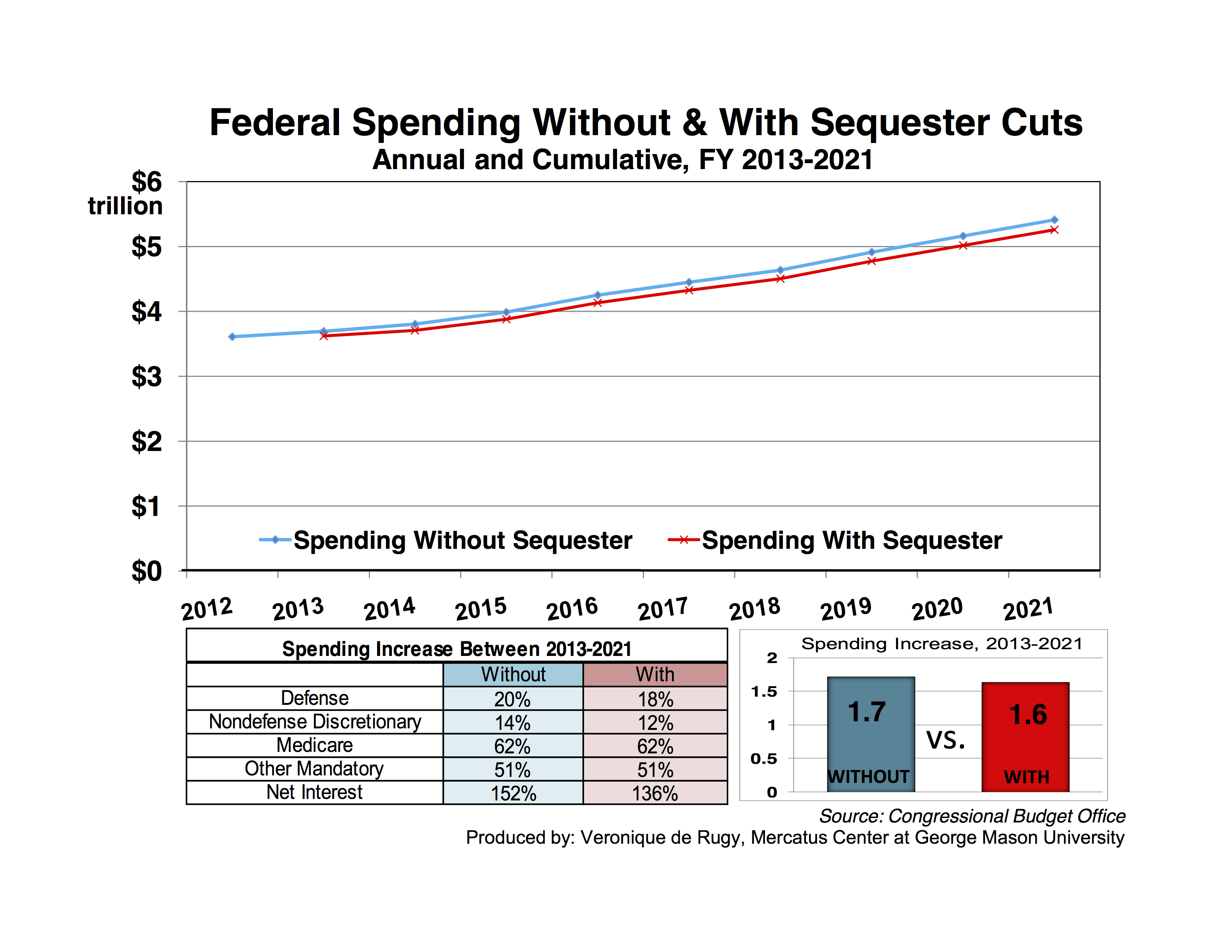By now you’ve probably heard of the failure of the heroically-named “Super Committee” to reach an agreement on the federal deficit. Unsurprisingly, both parties are spinning the failure to target $1.2 trillion worth of cuts as entirely the fault of the other party. The GOP presidential hopefuls are blaming Obama’s leadership (or lack thereof) for the failure, while Dems are framing the debate as a choice between saving the entitlement programs your dear old grandma is dependent on vs. the GOP’s desire to keep low tax rates for their wealthy puppetmasters. And those automatic sequesters that are supposed to knock out $1.2 trillion in spending in the event of a supercommittee failure? Don’t count on those remaining in tact, either.
Rep. Jeb Hensarling (R-TX) blamed the super committee’s failure on “two dramatically competing visions of the role government should play in a free society.” However, that raises the question: when was the last time there wasn’t two “dramatically competing” political philosophies in this country? The Right and Left, North and South, Tories and Patriots have always been butting heads, and until recently they managed to do so without steering the country toward a debt crisis. The one time in the last century that the national debt exceeded GDP, politicians could at least say that they were spending the money on killing Nazis. Compared to "killing Nazis," neither “expanding Medicare” nor “extending the Bush tax cuts” make for compelling, emotionally satisfying excuses for uncontrolled federal spending. (Even “killing terrorists” is increasingly viewed by many Americans on both the left and right as an ineffective boondoggle).
You might be thinking that at least the automatic $1.2 trillion spending cuts are a consolation prize. While I hate to burst your impossibly-optimistic bubble, here’s a graph of future federal outlays, courtesy of the Mercatus Center’s Veronique De Rugy:

Rest assured, your eyes aren’t playing tricks on you. Federal spending with or without the sequester cuts is almost unchanged. An analogy from Nick Gillespie wonderfully describes the total impact of a $1.2 trillion spending cut stretched over 10 years: “It's like buying a car for $20,000 and then haggling over whether they throw the frickin' deluxe floor mats in for free.”
And there you have it. The super-committee squandered an opportunity to get the deficit under control and is instead parlaying it into an election tactic for 2012. Well done, ladies and gentlemen of the Congress. Is it any wonder your approval ratings have fallen lower than Paris Hilton’s and BP's?

